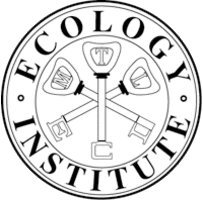International Ecology Institute
21385 Oldendorf/Luhe, Germany
The International Ecology Institute (ECI) is a non-profit organization of research ecologists dedicated to fostering ecological knowledge and awareness. It is funded by Inter-Research.
The ECI strives to
- further the exchange of information between marine, terrestrial and freshwater ecologists and to promote advancement in environmental research
- compensate for the lack of balance between analyzing and synthesizing research efforts and thus help to provide more feedback and critical overview for ecological sciences
- draw the attention of scientists, administrators, politicians and the general public to important issues resulting from ecological research
- assist in finding a long-term compromise between the increasingly destructive potential of modern industrial societies and the need for defining and applying measures to protect nature, commensurate with achieving and sustaining the highest possible living standard for human societies
The major means of approaching these aims are, at present, the two international prizes (ECI Prize, IRPE Prize) conferred annually (biennially from 2019) by the ECI, the book series 'Excellence in Ecology' and the Otto Kinne Foundation (OKF).
Excellence in Ecology
The book series 'Excellence in Ecology' (EE) was founded by Otto Kinne. It is published by the International Ecology Institute (ECI). EE presents books authored by noted ecologists of our time: the ECI Prize laureates. In a rotating pattern, books are published in the fields of marine, terrestrial or freshwater ecology. EE books address researchers, teachers, students and interested laymen, as well as administrators and politicians professionally engaged in ecology-related decision making. ECI laureates are elected by a jury composed of ECI members, all of high international reputation. For details on ECI laureates please visit this link.
EE books offer laureates a global stage for publicizing their views
on important ecological issues, and for interpreting current scientific
knowledge on the basis of their own experience and insight.
How to cite an EE Book - An example:
Hildrew A (2018) Freshwater acidification: natural history,
ecology and environmental policy. Excellence in ecology. Book 27. International
Ecology Institute, Oldendorf/Luhe
EE books are made available worldwide at cost price. A considerable
number of books are donated to libraries in less developed countries.
